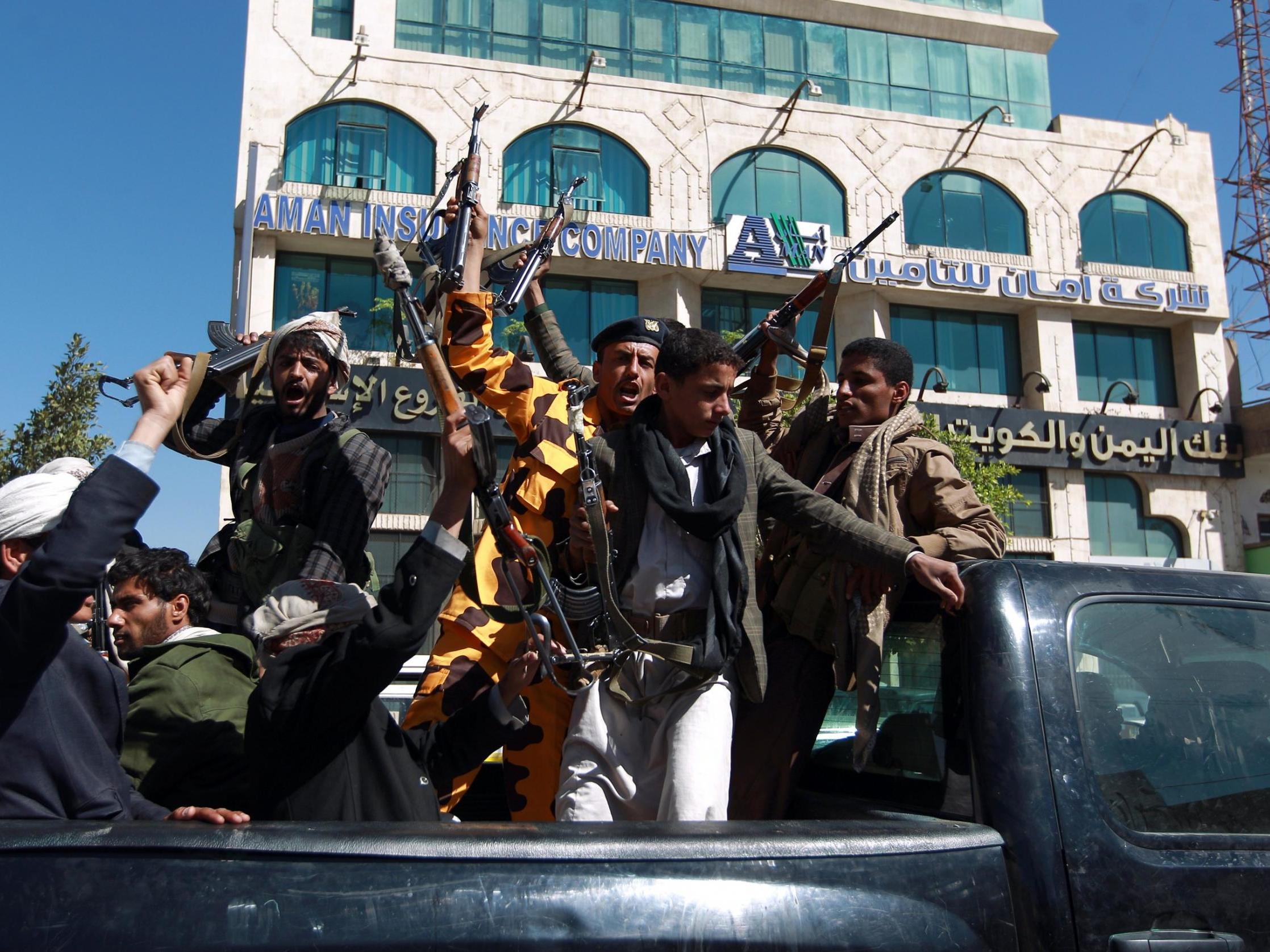Rising US-Iran tensions risk endangering Yemen peace efforts, UK government warns
Foreign secretary Jeremy Hunt plans to raise the war with President Trump on his state visit to Britain

Your support helps us to tell the story
From reproductive rights to climate change to Big Tech, The Independent is on the ground when the story is developing. Whether it's investigating the financials of Elon Musk's pro-Trump PAC or producing our latest documentary, 'The A Word', which shines a light on the American women fighting for reproductive rights, we know how important it is to parse out the facts from the messaging.
At such a critical moment in US history, we need reporters on the ground. Your donation allows us to keep sending journalists to speak to both sides of the story.
The Independent is trusted by Americans across the entire political spectrum. And unlike many other quality news outlets, we choose not to lock Americans out of our reporting and analysis with paywalls. We believe quality journalism should be available to everyone, paid for by those who can afford it.
Your support makes all the difference.The painstaking progress being achieved in Yemen’s bitter civil war risks being jeopardised by rising tensions between the US and Iran, the UK’s foreign secretary has warned.
Jeremy Hunt stressed that he would raise his concerns over the issue with Donald Trump during the president’s state visit in June. Mr Hunt has already discussed the issue with US secretary of state Mike Pompeo.
Yemen, shattered by violence over four years, is facing the worst humanitarian crisis in the world. Some 12 million people, nearly 40 per cent of the population, are on the brink of starvation. Almost 8,000 people have been killed and 11,500 injured since the conflict began in 2015, according to the United Nations.
However, following talks in Stockholm at the end of December, Houthi rebels pulled out of three key Red Sea ports – Hodeidah, Salif and Ras Isa – in partial implementation of a ceasefire. Attempts are under way for aid to be distributed in the worst-hit areas.
Speaking on National Yemen Day in the House of Commons, Mr Hunt acknowledged that the country was seeing one of the worst humanitarian disasters in recent times and that there was a long way to go before the conflict ended.
But Mr Hunt added: “There is now a profound commitment on both sides to end the conflict and the frustrations over Hodeidah may be coming to an end. The United Kingdom has a particular responsibility as a ‘penholder’ [pushing forward motions] at the UN and we recognise that.
“But my concern is to ensure that Yemen does not get caught up in the tensions between the US and Iran. I will raise this with President Trump when he comes; I have discussed this with Secretary Pompeo. We all need to ensure that the ceasefire is maintained and built upon, it is all our jobs to do this.”
Mr Hunt was speaking at the all-party event before a Commons debate on Yemen, during which the government was expected to come under severe criticism for continuing to sell arms to the Saudi-led Sunni bloc carrying out the military campaign against the Iranian-backed Houthis.
In a message to the Yemen day gathering, Jeremy Corbyn reiterated that the Labour Party’s policy was an “immediate end to arms sales to Saudi Arabia” and a United Nations-led “investigation into allegations of war crimes against both sides”.
Meanwhile, the problem of separating the Yemen conflict from wider regional tensions involving Iran was brought into focus by the Yemeni information minister.
Speaking at the Commons event, Moammar al-Eryani said: “What the Houthis are doing in Yemen, they are doing with the support of Iran. The Houthis have been using hospitals and schools as military places, they have expelled thousands of civilians and laid mines, they have laid mines and destroyed aid, food and medicine. The Houthis’ supporters know what they are doing.”
The Saudi-led coalition has also been accused of committing war crimes in Yemen, which it denies.
“The Houthis have been using Yemen to fire missiles into neighbouring countries,” al-Eryani added. “They have been responsible for the firing on the Aramco tanker, which raised oil prices and created economic instability in the area.”
The Saudi government has blamed Iran, its Shia regional rival, for instigating missile strikes by Houthis from Yemen.
US officials have claimed that Tehran was behind the attacks on oil tankers and have used that as one of the key reasons behind deploying an aircraft carrier strike group and B-52 bombers to the Gulf region.
Iran has denied involvement in any attack on the tankers, and has denied being behind a Houthi drone strike on Saudi Arabia.
Join our commenting forum
Join thought-provoking conversations, follow other Independent readers and see their replies
Comments